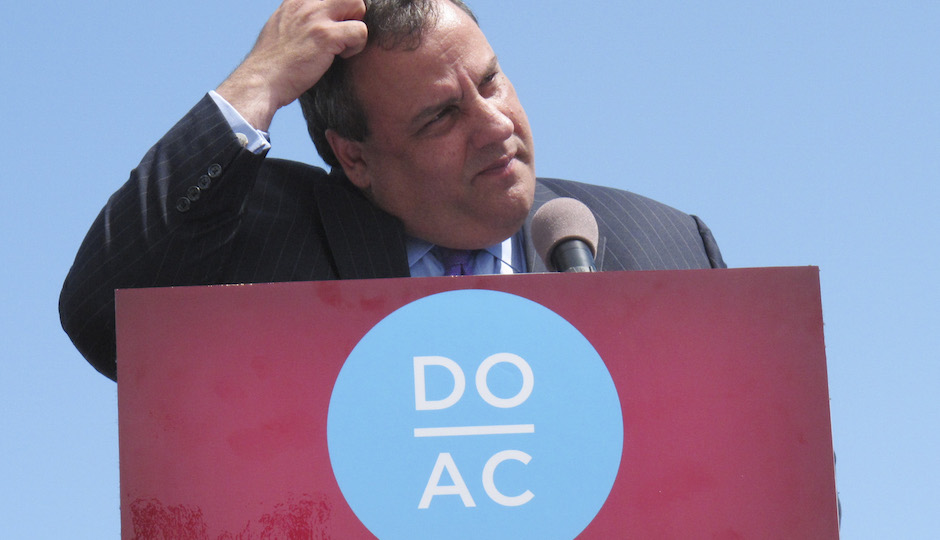Three Reasons Chris Christie Is the Wrong Man to Fix Atlantic City

New Jersey Gov. Chris Christie speaks in Atlantic City N.J., on Thursday, May 24, 2012. (AP Photo/Wayne Parry)
Here’s what stinks about New Jersey’s takeover of Atlantic City’s finances: Chris Christie hasn’t exactly proven himself extra-insightful about how to arrest the city’s decline.
Christie has doubled-down and then doubled-down again on projects and ideas that were clearly dubious, all in an attempt to extend Atlantic City’s shelf-life as a gambling mecca — and yet in the end he decided it was the city’s leaders who couldn’t be trusted with its financial future.
“I can’t wait any longer,” the governor said in announcing the takeover. “We need to take more aggressive action.”
Granted, there’s a lot of short-sightedness and blame to assign all around when we talk of Atlantic City’s stumbles. But Christie’s aggressive actions have been, taken as a whole, aggressively wrong.
Here are three reasons Chris Christie is the wrong man to fix Atlantic City:
• He’s too busy running for president: Maybe this is an argument for why Christie should resign the governorship entirely, but it also applies to specific issues facing New Jersey — Christie’s simply giving every impression these days that his home state is a distraction from bigger ambitions and bigger fun. (Jerry Jones, anyone?)
His State of the State address seemed to address a national audience more than a regional one. He’s spent so much time out of state in the last year, fundraising and meeting donors and campaigning and giving speeches to special interest groups, that he’s seemed more like an absentee than a problem-solving neighbor. Do we want Christie trying to fix A.C. while he tries to woo Iowa? Atlantic City officials, at least, will have to live with the consequences of their decisions; Christie’s already trying to escape.
• He’s the guy who pushed the Revel to open. The governor’s allies have been very clear about this: Not one cent of taxpayer money was to be used to restart construction on the Revel after work had come to a halt in 2010. But Christie’s promise — that the Revel would get $261 million of its taxes reimbursed over the first 20 years of its life — was enough to re-start a project that had previously appeared doomed. Turned out, it was doomed anyway.
“The private markets knew that Revel was a bad investment, which is why the project stalled,” Josh Barro later wrote, castigating both Christie and the state’s Democrats for the debacle.” New Jersey would be better off if its Republicans and Democrats had found themselves at odds.”
But the bet on the Revel was part of a larger problem for Christie.
• He’s tried to arrest the decline of Atlantic City gambling with … more gambling. Remember when online gambling was sold as the way to shore up Atlantic City’s casino decline, expected to generate $200 million in state tax revenue the first year? It made about a sixth of that. More recently, Christie has tried to unilaterally sidestep federal law to allow in-state betting on live sporting events, but all that’s done is involve the state in expensive litigation.
The problem: Christie knew better, or should have. For years, he’s been warning that Atlantic City no longer has a gambling monopoly — and yet his major actions have been geared toward shoring up the gaming industry. He’s like a traveling salesman trying to sell buggy whips out of the back of a Model T.
“Atlantic City is dying. The question is are we going to allow the same doctors who put the patient in this condition to treat the patient?” the governor asked in way back 2010.
Nearly five years later, the same question should be asked of, and about, Christie himself. We all know what’s happened, yet the governor proceeds forward as though he hadn’t contributed to the problem. He has already had plenty of input into Atlantic City’s future — and been almost entirely wrong. Why should he be the one who determines what happens next?
Follow @JoelMMathis on Twitter.


